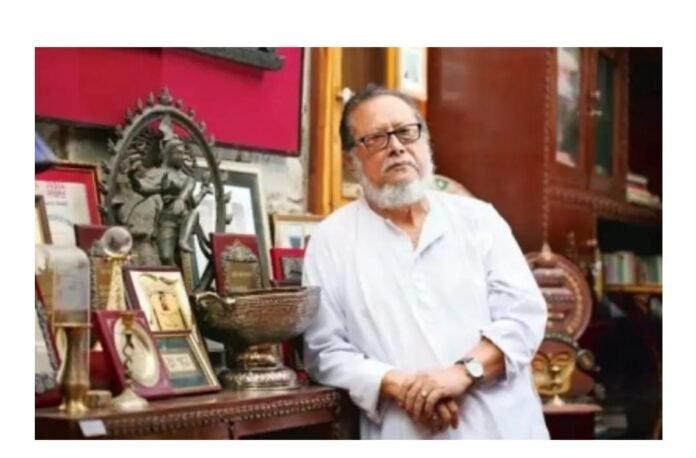Theatre personality Ratan Thiyam’s call for religious leaders to play a role in restoring peace in Manipur amid violence is a significant step towards fostering harmony and resolving conflicts. Ratan Thiyam is a renowned figure in the field of theatre, known for his powerful plays that often touch upon social and political issues. His appeal reflects the recognition of the influential role that religious leaders can play in promoting peace and reconciliation.
Religious leaders have the potential to bring communities together and bridge gaps by promoting dialogue, understanding, and tolerance. They can utilize their moral authority and influence to advocate for peace, encourage non-violent means of conflict resolution, and promote a spirit of compassion and unity. In a diverse society like Manipur, where different religious communities coexist, the involvement of religious leaders can be particularly crucial in fostering interfaith harmony.
By reaching out to religious leaders, Ratan Thiyam highlights the importance of collective efforts in addressing the violence and unrest in Manipur. Their involvement can help defuse tensions, dispel misunderstandings, and promote a sense of shared humanity. Additionally, religious leaders can contribute to addressing the root causes of conflicts and work towards creating a conducive environment for sustainable peace.
It is essential to acknowledge that promoting peace requires a multi-faceted approach involving various stakeholders, including civil society organizations, community leaders, government authorities, and individuals from different walks of life. By emphasizing the role of religious leaders, Ratan Thiyam recognizes their potential as influential figures who can contribute significantly to peace-building efforts.
Imphal, Manipur: Against the backdrop of escalating tension due to ethnic violence in Manipur, renowned theatre personality Ratan Thiyam has made a heartfelt appeal to religious leaders across the state. In an effort to restore peace and stability, Thiyam emphasized the crucial role that religious leaders can play in fostering harmony and reconciliation.
Thiyam’s plea comes at a time when Manipur finds itself grappling with escalating violence between different ethnic communities. As an esteemed figure in the theatre industry, known for producing powerful plays that tackle social and political issues, Thiyam’s call for religious leaders’ active participation carries significant weight.
Religious leaders possess a unique ability to unite communities and bridge divides by promoting dialogue, understanding, and tolerance. Leveraging their moral authority and influence, they can advocate for peaceful resolutions to conflicts and foster an atmosphere of compassion and unity. In a diverse society like Manipur, where multiple religious communities coexist, the involvement of religious leaders becomes even more crucial in nurturing interfaith harmony.
Thiyam’s appeal underscores the importance of collective efforts in addressing the prevailing violence and unrest in Manipur. Religious leaders can help defuse tensions, dispel misunderstandings, and promote a sense of shared humanity. Furthermore, their participation can contribute to addressing the underlying causes of conflicts, paving the way for sustainable peace.
Acknowledging that peacebuilding necessitates a multifaceted approach involving various stakeholders, Thiyam’s focus on religious leaders recognizes their potential as influential figures who can significantly contribute to peace and stability.
However, it is essential to recognize that achieving lasting peace and reconciliation requires addressing the root causes of violence and conflict. While religious leaders can facilitate an environment of peace and understanding, broader societal and systemic changes are necessary to address underlying grievances.
With tension gripping Manipur, the proactive involvement of religious leaders is crucial to restoring calm and stability. By utilizing their moral authority, influence, and ability to bring communities together, they can serve as valuable agents of peace-building in the state.
Ratan Thiyam’s appeal for religious leaders to play an active role in restoring peace in violence-hit Manipur highlights their potential as catalysts for change. Their involvement, alongside other stakeholders, can pave the way for a more harmonious and peaceful coexistence in the state. As Manipur seeks to heal from the scars of ethnic violence, collective efforts guided by compassion and understanding remain the key to a brighter and more inclusive future.


